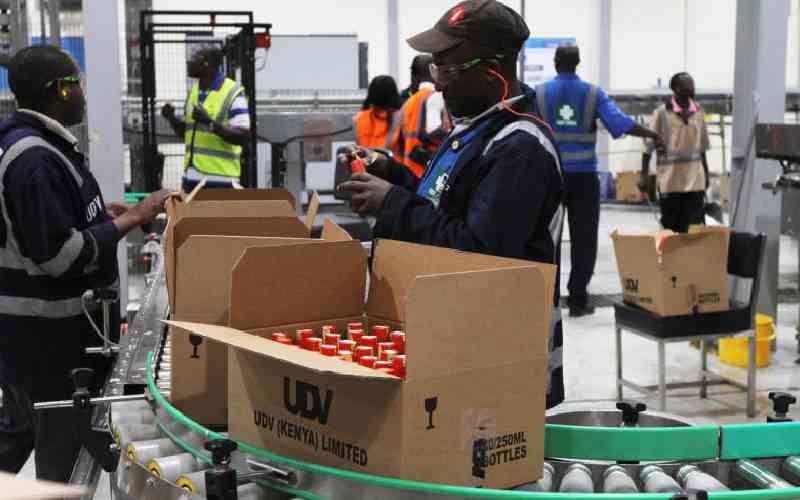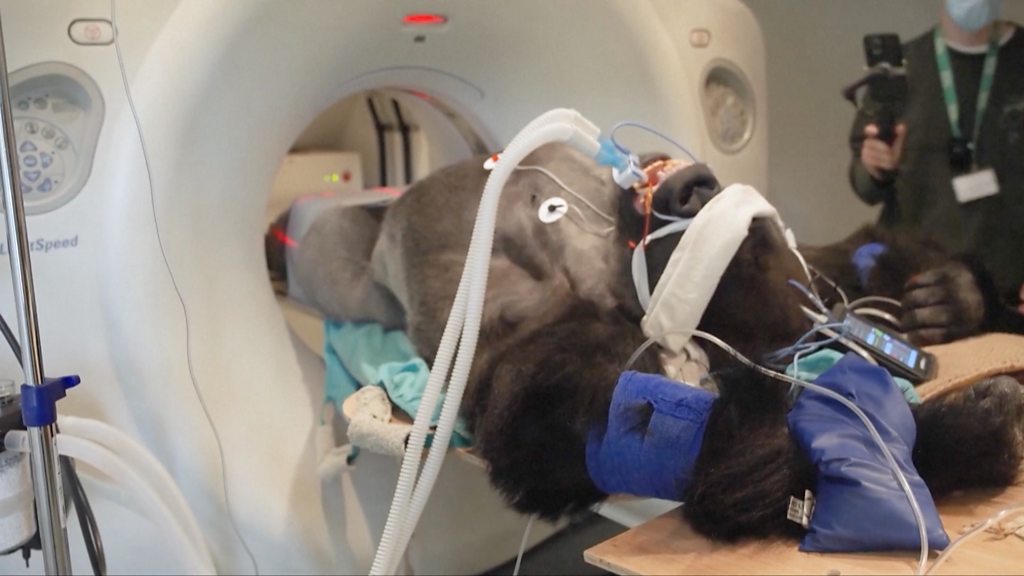By Kamau Muthoni,Standard Business
Copyright standardmedia

Beer processing chain in action during the Kenya Breweries Ltd (KBL ) Nairobi’s plant tour. [File, Standard]
Alcohol manufacturer Kenya Breweries Ltd (KBL) has sued the Kenya Revenue Authority (KRA) in a row over a Sh740 million tax refund.
In its case filed before the High Court in Nairobi, the brewer claims the taxman illegally collected Sh564 million despite Parliament’s rejection of an upward adjustment of excise duty.
At the same time, it alleged that KRA owes its sister company, UDV (Kenya Ltd), Sh176 million in tax refunds, which also remains unpaid to date.
In its court papers filed by Iseme, Kamau and Maema Advocates, KBL explains that on July 13, 2018, the commissioner general issued a gazette notice indicating that KRA had adjusted the excise duty by a 5.2 per cent margin, factoring in inflation.
The notice indicated that the upward adjustment was to kick in on August 1, 2018. According to the firm, the new levy affected its beer, cider, mead, opaque beer, spirituous beverages, and mixtures of fermented but non-alcoholic beverages by between Sh100 and Sh105 per litre. Further, it stated that the excise duty of its spirits of undenatured ethyl alcohol, spirits, liqueurs, and other spirituous beverages of alcoholic strength exceeding 10 per cent was increased from Sh200 to Sh210.40 per litre.
However, KBL argued that Parliament annulled the gazette notice, making it unenforceable.
According to the brewer, KRA did not remove the rates that were contained in the invalidated gazette notice, which forced the company to pay the new rates.
“The petitioners aver that the system operated by the respondent requires taxpayers to file returns online using the iTax system, which has preloaded tax rates. This then means that even where rates have changed, unless the rates on the iTax platform are amended to allow for application of new rates, the rates on the platform are the only ones a taxpayer can use,” argued KBL, adding that KRA’s failure to make changes in the system “was deliberate.”
Its lawyers said that it overpaid taxes by more than Sh740 million, which KRA has declined to refund.
The court heard that KBL wrote to the tax agency twice on June 28, 2019, asking that KRA refund Sh613 million and further Sh173 million to UDV.
KRA then responded on July 11, the same year, claiming that KBL and UDV were not entitled to a refund under Section 29 of the Excise Duty Act.
The two companies formally raised their objection, arguing that KRA was supposed to adjust its system to reflect the previous taxes within 14 days after Parliament’s rejection of its new levies.
It stated that it was further sent to KRA a spreadsheet detailing the overpaid money in the hope that it would get the money back or the authority would raise an objection as required by the law within 60 days.
KBL said KRA went quiet on the matter. “In the circumstances, the respondent has no lawful reason for withholding refunds due to the petitioner. By reason of the matters aforesaid, the continued retention of the overpaid excise tax by the respondent that was paid to it using the rates that were rejected by the National Assembly amounts to imposing a tax obligation and collecting tax not authorised by law,” said KBL.
KBL legal director Nadida Rowlands, in his supporting affidavit, said the firm paid the adjusted taxes from its coffers as the additional cost could not be transferred to the consumers.
According to Rowlands, there is uncontroverted proof that KRA got money that it was not supposed to have demanded.
Parliament decided to annul the entire adjustment notice as KRA did not consult the stakeholders, nor was there public participation.
At the same time, it emerged that there was an unjustifiable delay in the gazette notice publication. It also observed that KRA had made adjustments to only part of the items while leaving out others.
“However, the likely disadvantage of this adjustment for inflation is the risk of introducing potential frequent changes in prices of goods and services affected by the inflation change. This will most likely affect business and investment planning,” a parliament’s report filed in court reads in part.
Rowlands said owing to KRA’s alleged defiance, the brewer’s rights have continued to be violated.
He stated that if KRA had responded within the stipulated timelines, then it would have pursued the amount before the Tax Appeals Tribunal.
However, according to KBL, the silence meant that the authority had owned up but deliberately refused to remit the money. According to KBL, the overpaid taxes have caused it and UDV irreparable loss and damage. I argued that denying it colossal amounts that would have funded its operation and forcing it to incur expenses in pursuing the refunds is unfair, unreasonable, illegal, and in bad faith.
“This honourable court has the power, and in the circumstances of this case, the obligation to compel the respondent to comply with the law and process the petitioners’ refunds,” said Rowlands.



